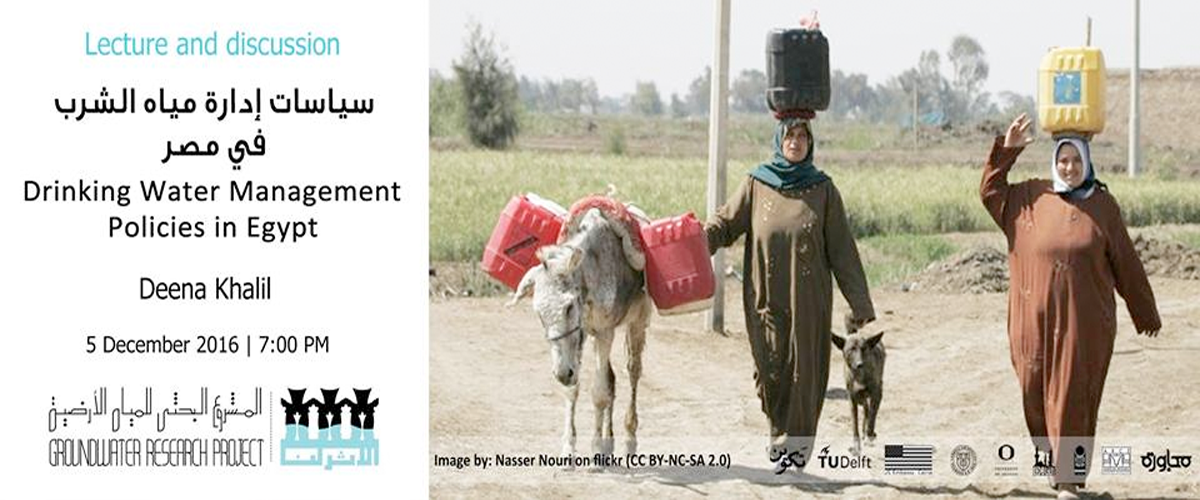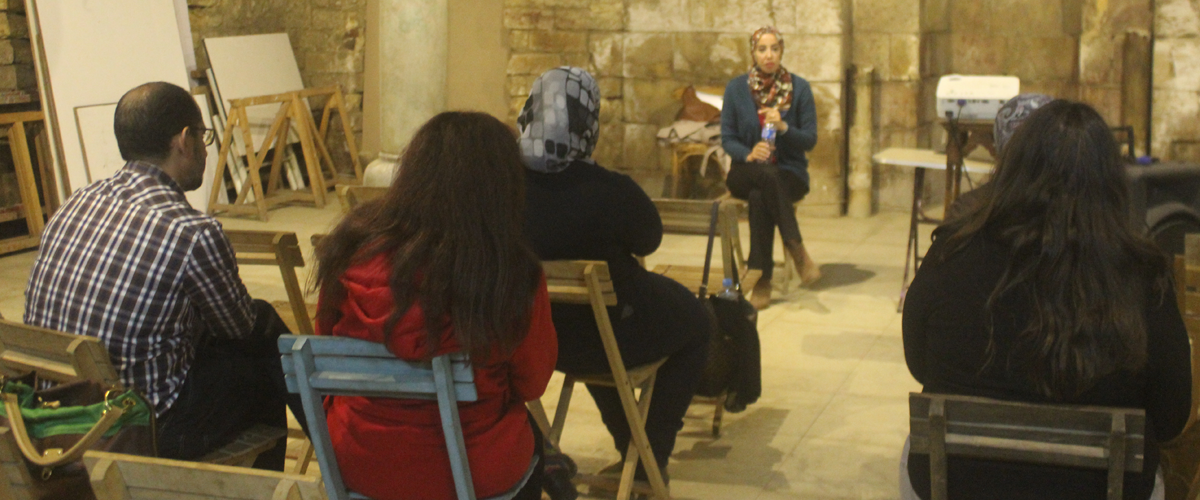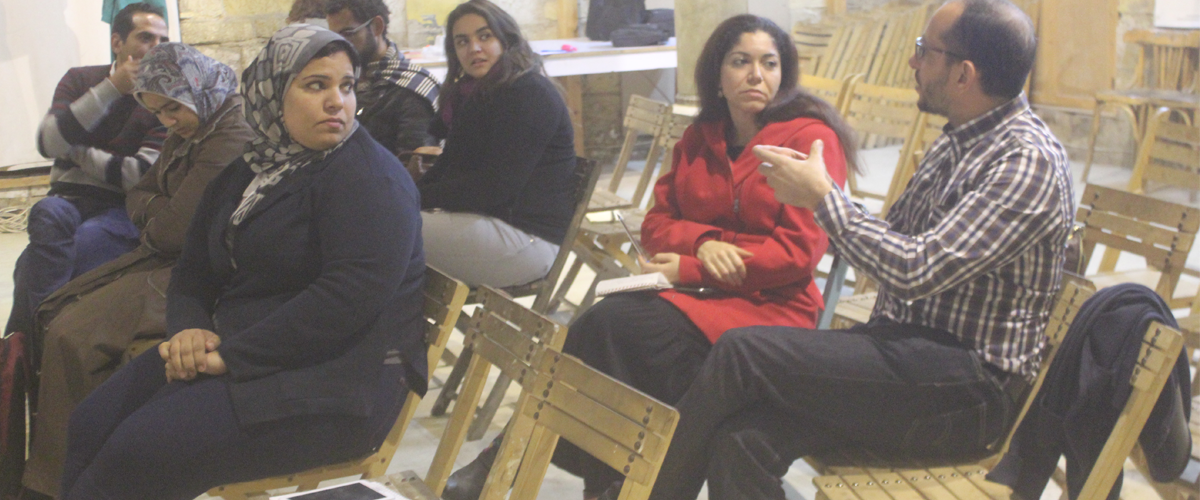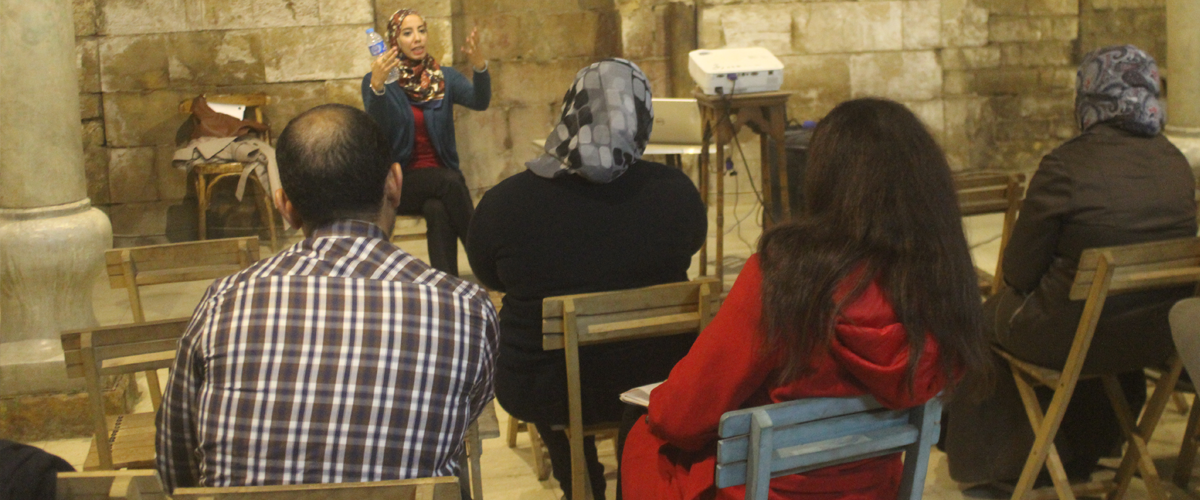The first public lecture of the Conservation School on salt and groundwater problems in historic settings within the framework of Athar Lina's Groundwater Reseach Project.
During the past few decades, the Egyptian government has dedicated much attention to expanding the water network and ensuring that Egypt achieves the MDGs related to water access, which it succeeded in doing. However, when delving into the details of the management of drinking water in Egypt, one will find that there are many problematic issues. In this lecture, Deena Khalil discusses a number of issues related to drinking water management in Egypt, with a focus on Cairo, New Cairo, and informal areas in Cairo. Specifically, the lecture will focus on 4 issues which are:
- The distribution of drinking water among Egypt’s governorates and cities, and the spatial discrimination resulting from this distribution
- The New Cairo water crisis which is the result of poor management practices, and which has been ongoing for several years despite the fact that New Cairo has received one of the highest per capita shares of water country-wide, as well as one of the highest financial investments in water infrastructure.
- The issue of the water tariff, and the history of this tariff since the 1990s and the various increases it has gone through, particularly within the last five years. The lecture will also discuss the legal framework relevant to the water tariff, and some problematic aspects of how the water bill is calculated today, which results in users unfairly paying higher prices than their actual consumption.
- The complicated relationship between informal areas and drinking water, with a focus on what has changed over the past five years, particularly in light of a recent study produced by the Cairo Governorate that finally details the different forms/levels of water scarcity in Cairo’s informal areas.
About the lecturer: Deena Khalil
Deena obtained her MA in Economics of International Development at the American University in Cairo in 2008. Between 2008 and 2013 she worked as a project coordinator and researcher on studies related to HIV-AIDS, water and sanitation, and project monitoring and evaluation in Egypt and Sudan. Since 2012, she has been a PhD candidate at University College London's Development Planning Unit (DPU) where she is studying the politics of access to potable water and infrastructure in Cairo’s informal areas. Within the DPU she has also been working as a research assistant for the Environmental Justice and Urban Resilience research cluster since 2013. Since 2014, she has been a Senior Researcher on Egyptian Urbanism at TADAMUN: The Cairo Urban Solidarity Initiative.
* Athar Lina Groundwater Research Project organised by Athar Lina Initiative (Megawra-Built Environment Collective) in partnership with the Ministry of Antiquities and in collaboration with Cairo Governorate, the University of Oregon, the University of Cornell and Takween. Funded by the American Research Centre in Egypt with additional funding from the US Embassy, Cairo.
*The lecture will be in Arabic
*Location: Megawra al-Khalifa (Khalifa community center)
A Google map showing the directions to Megawra al-Khalifa:
http://goo.gl/lvAu0C




